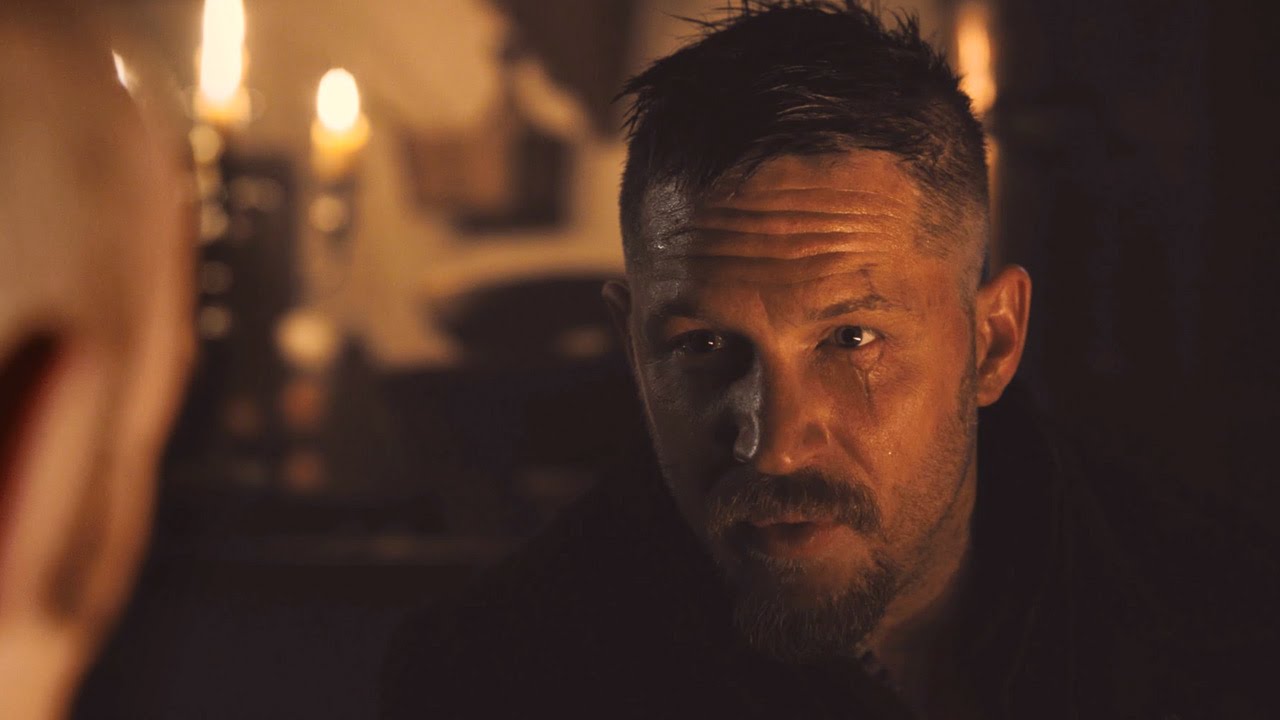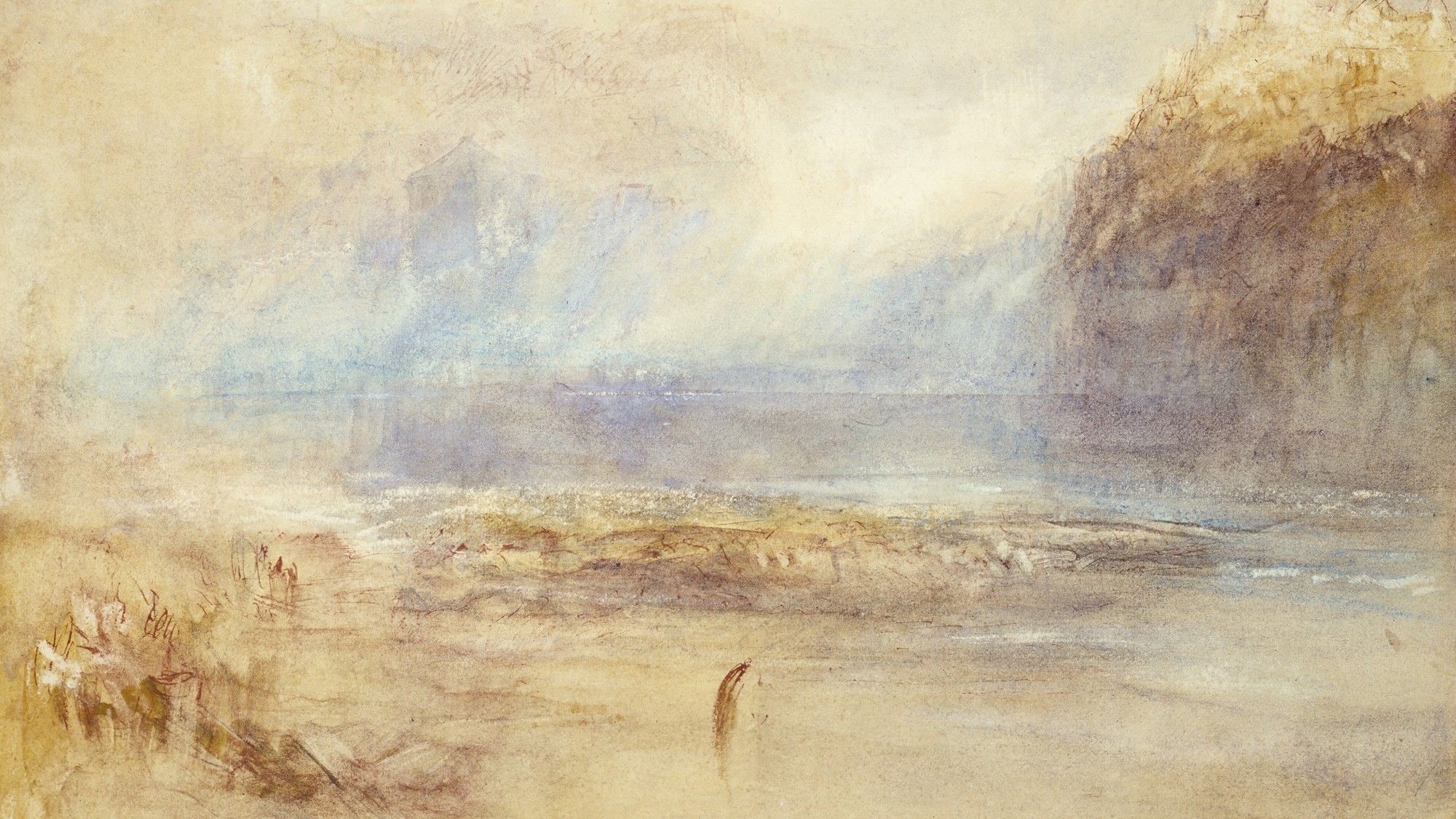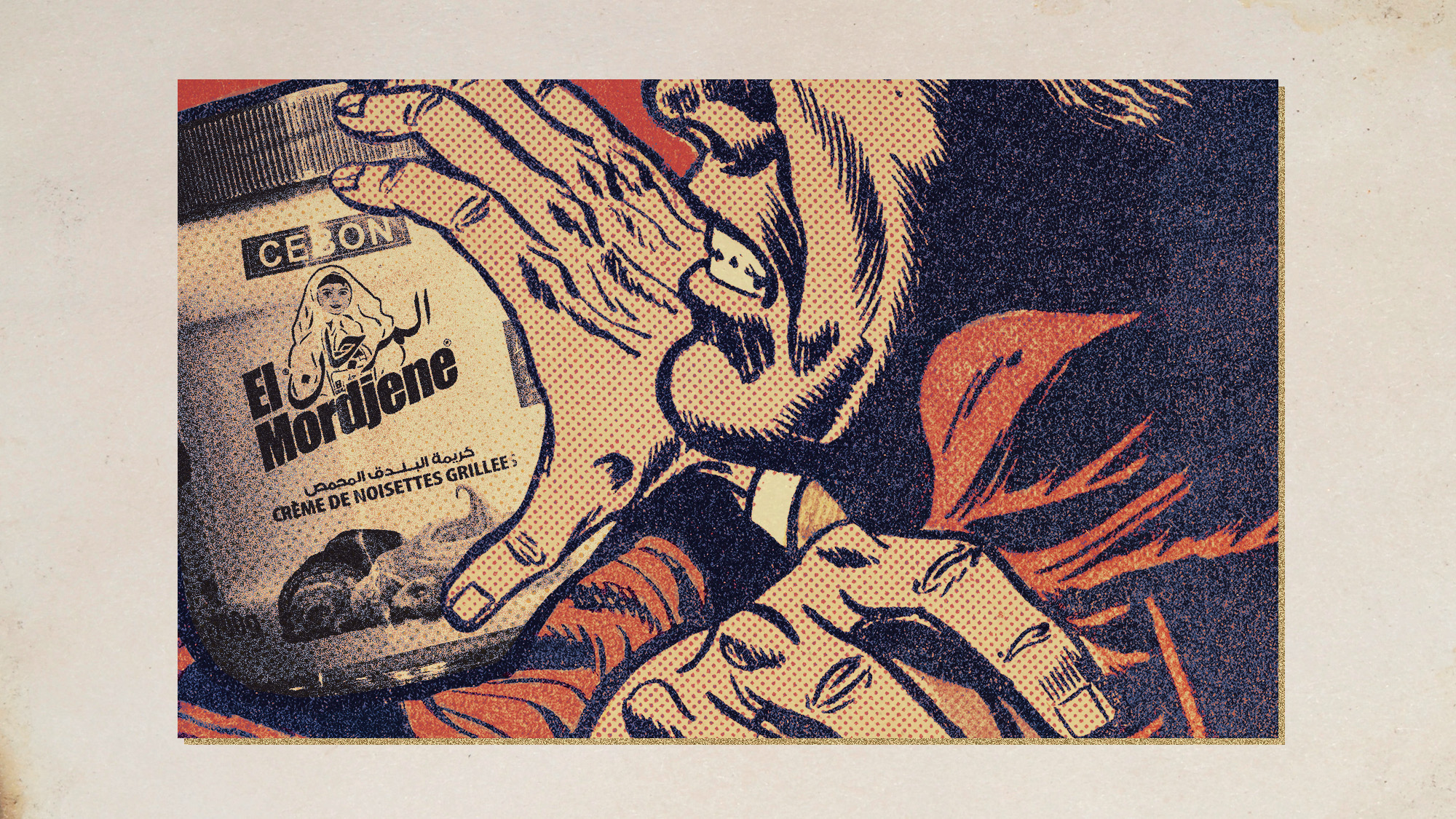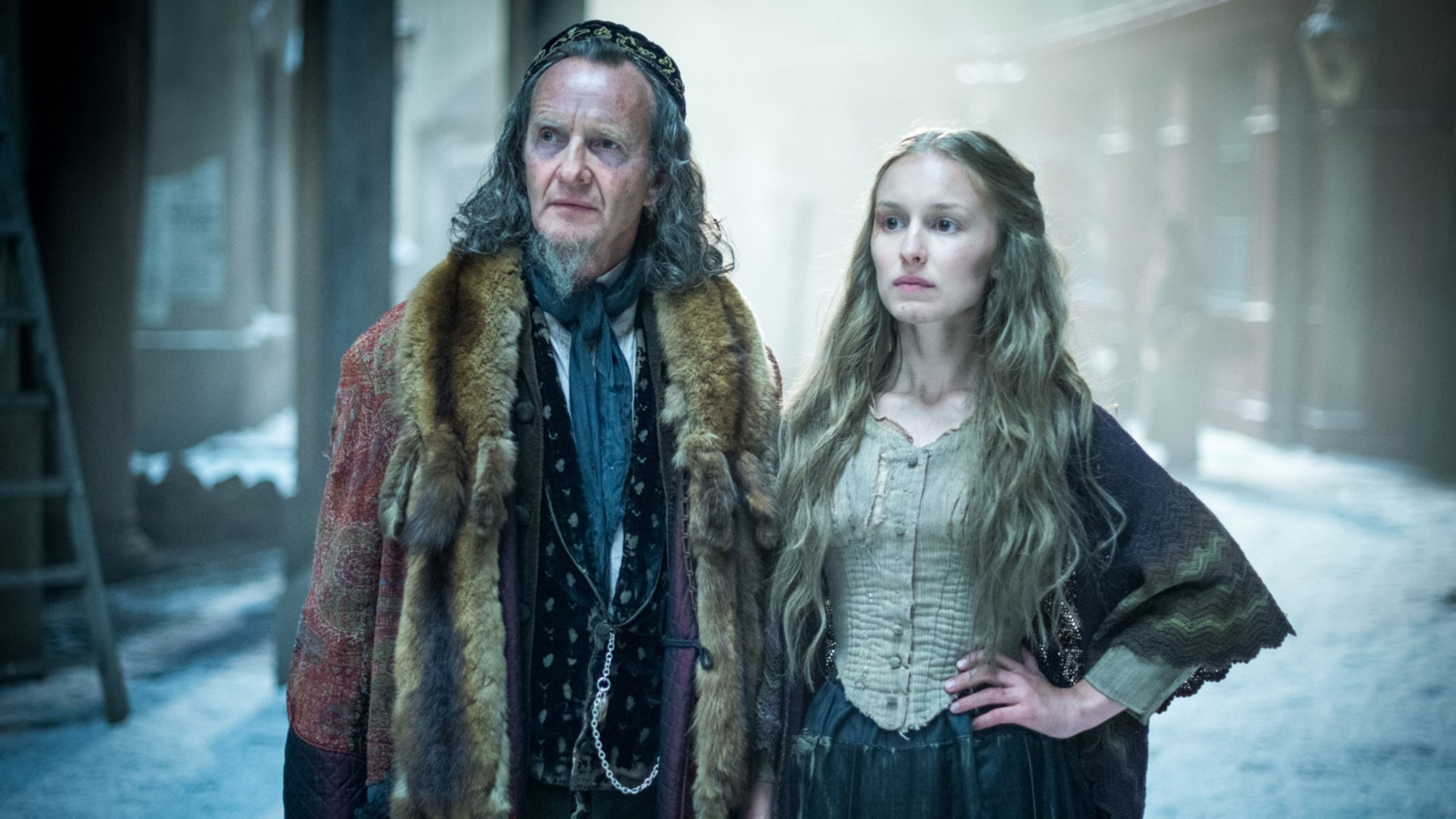What was the East India Company? Tom Hardy takes on British institution in BBC's Taboo
It's being portrayed as the 'biggest, baddest multinational corporation on earth', but what was the true story of the EIC?

A free daily email with the biggest news stories of the day – and the best features from TheWeek.com
You are now subscribed
Your newsletter sign-up was successful
International trade isn't perhaps the sexiest of subjects for a TV series, but when it deals with the East India Company and the series is a BBC blockbuster starring Tom Hardy, things start to look interesting.
Taboo, which starts on BBC1 on Saturday 7 January, is helmed by Peaky Blinders creator Stephen Knight and Hollywood supremo Ridley Scott – and it's no period drama.
The dark, gritty series sees Hardy play adventurer James Keziah Delaney, who returns to England after his father's death in 1814 bent on bloody vengeance.
The Week
Escape your echo chamber. Get the facts behind the news, plus analysis from multiple perspectives.

Sign up for The Week's Free Newsletters
From our morning news briefing to a weekly Good News Newsletter, get the best of The Week delivered directly to your inbox.
From our morning news briefing to a weekly Good News Newsletter, get the best of The Week delivered directly to your inbox.
The East India Company has a starring role as a bloodthirsty, nation-toppling monolith – "the biggest, baddest multinational corporation on earth", Knight tells the Daily Telegraph – against which Delaney sets himself up.
However, historians say the eight-part drama misrepresents the company, which benefited Asian traders as well as their English counterparts. They also rubbish the idea of the East India Company as capable of behaving like a multinational firm or intelligence agency.
"The company did not have the means to enforce any kind of conspiracy. The biggest battles it had were with itself," Dr Tirthankar Roy, economic historian at the London School of Economics, told the Telegraph.
But what was the East India Company? And was the self-styled "grandest society of merchants in the universe" really as bad as voices from Adam Smith to Pirates of the Caribbean have suggested?
A free daily email with the biggest news stories of the day – and the best features from TheWeek.com
How was the East India Company born?
The East India Company was founded on New Year's Eve in 1600, when a royal charter granted a group of London merchants a sprawling monopoly on all English trade east of the Cape of Good Hope and west of the Straits of Magellan.
The contract was initially granted for 15 years, but its wily stockholders ensured its survival all the way into the 1800s, bribing and lobbying to ensure the monopoly's renewal.
What was it for?
Born in the wake of the Spanish Armada, the organisation successfully broke the stranglehold of Spain and Portugal on the region's spice trade.
Over the centuries, it expanded to trade everything from bullion and pepper to slaves, cotton and indigo. Its last monopoly, over the China tea trade, was abolished in 1833.
Just how big did it get?
Pretty big. By the 1800s, the East India Company generated almost half of England's trade, ensuring its interests were often indiscernible from the country's. It became London's largest employer, sprawling across dockhouses, foundries and even slaughterhouses built to provide food for its hungry crews. Its private army of 260,000 men also meant it gained control over an entire subcontinent.
"It was not the British government that seized India at the end of the 18th century, but a dangerously unregulated private company headquartered in one small office, five windows wide, in London," The Guardian says.
What were the challenges?
Despite its might, the company had to constantly ward off independent traders – similar to Taboo's Delaney – who were scornfully referred to as "interlopers".
When the government set up a competitor to try curb its power, its directors conducted a forced merger with the upstart. They even managed to get the merged organisation's monopoly charter renewed by Oliver Cromwell in 1657.
However, the East India Company fell into dire financial straits in the 1770s, when accusations of corruption and abuses of power led to growing calls to rein it in.
Eventually, the company had to ask the Bank of England for a loan of £400,000, despite annual profits of some £2m. In return, parliament passed acts regulating the corporation's affairs.
Politicians also, in 1773, granted the East India Company a monopoly on tea sales in the American colonies to help raise cash – sparking the Boston Tea Party and eventually the American Revolution.
How did it come to an end?
The East India Company was ultimately responsible for its own demise, which came largely due to its catastrophic mismanagement of India.
The company acquired control of Calcutta in the 18th century and then effectively all of Bengal. But it was blamed for the 1770 Bengal Famine, in which an estimated ten million Indians – a third of the population – died.
Two successive poor harvests disastrously combined with the East India Company's punitive agricultural taxes and land mismanagement. Farmers were forced to grow indigo instead of food and there were reports that the starving were forced to eat the dead.
In 1857, the Indian Rebellion erupted, partly because Hindu and Muslim soldiers objected to having to load their rifles by biting open cartridges which were rumoured to be smeared with the fat of cows and pigs, animals forbidden to their religions.
The East India Company crushed the rebellion after nine months, hanging tens of thousands of suspected rebels along the Ganges. But the bloody incident was the final straw for parliament. The company was dissolved a year later and rule of India was taken over by the British Raj.
-
 How the FCC’s ‘equal time’ rule works
How the FCC’s ‘equal time’ rule worksIn the Spotlight The law is at the heart of the Colbert-CBS conflict
-
 What is the endgame in the DHS shutdown?
What is the endgame in the DHS shutdown?Today’s Big Question Democrats want to rein in ICE’s immigration crackdown
-
 ‘Poor time management isn’t just an inconvenience’
‘Poor time management isn’t just an inconvenience’Instant Opinion Opinion, comment and editorials of the day
-
 Turner: The Secret Sketchbooks – a fascinating portrait of the great painter
Turner: The Secret Sketchbooks – a fascinating portrait of the great painterThe Week Recommends BBC2 documentary examines the rarely seen sketchbooks of the enigmatic artist
-
 Dianarama examines the ‘extraordinary scale’ of Martin Bashir’s lies
Dianarama examines the ‘extraordinary scale’ of Martin Bashir’s liesThe Week Recommends Andy Webb’s book is packed with ‘astonishing’ allegations surrounding Princess Diana’s 1995 Panorama interview
-
 Eurovision faces its Waterloo over Israel boycotts
Eurovision faces its Waterloo over Israel boycottsTalking Point Five major broadcasters have threatened to pull out of next year’s contest over Israel’s participation
-
 Unforgivable: harrowing drama about abuse and rehabilitation
Unforgivable: harrowing drama about abuse and rehabilitationThe Week Recommends 'Catastrophic impact' of abuse is explored in 'thought-provoking' series
-
 Friendship: 'bromance' comedy starring Paul Rudd and Tim Robinson
Friendship: 'bromance' comedy starring Paul Rudd and Tim RobinsonThe Week Recommends 'Lampooning and embracing' middle-aged male loneliness, this film is 'enjoyable and funny'
-
 France's war on 'Algerian Nutella'
France's war on 'Algerian Nutella'Under The Radar A wildly popular hazelnut spread is causing a storm across the channel
-
 How to go on your own Race Across the World
How to go on your own Race Across the WorldThe Week Recommends The BBC hit show is inspiring fans to choose low-budget adventures
-
 The top period dramas to stream now
The top period dramas to stream nowThe Week Recommends Heaving bosoms and billowing shirts are standard fare in these historical TV classics